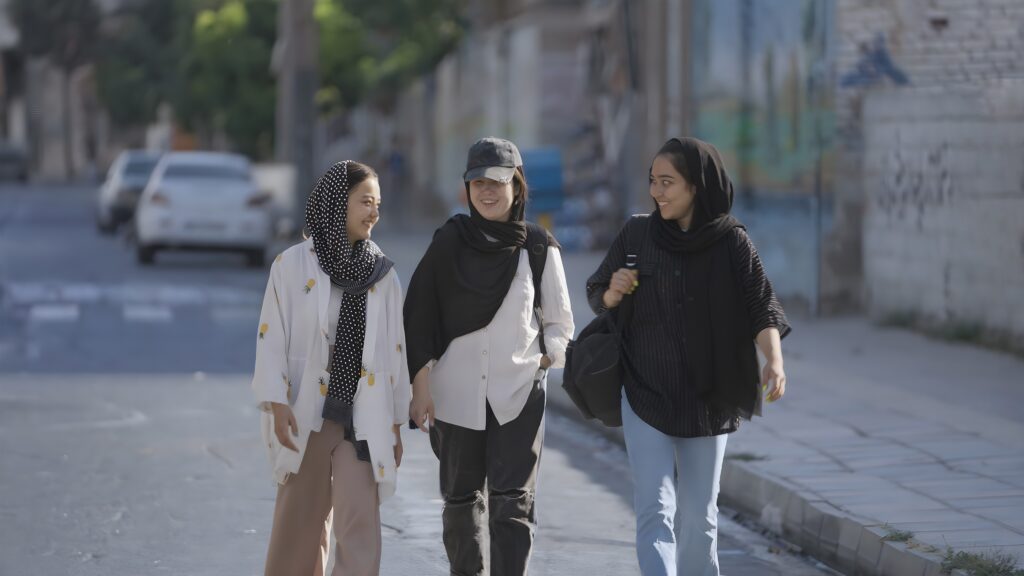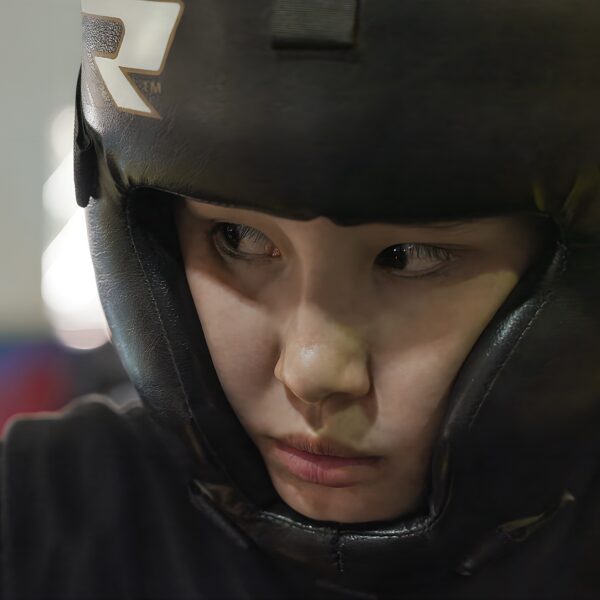A comment on Maydegol
A girl, dressed completely in black, is banging on a gate. She begs the owner to let her in to give her a job. However, whatever she tries is met with rejection. Frustrated, she jumps down, adjusts her headscarf and hurries off to the apple farm where she is working regularly. She then heads to her next job on a mushroom farm. She returns home late at night, regularly being the victim of domestic violence at the hands of her father. But Maydegol has a dream: She wants to become a professional Muay Thai boxer and join the national team. Unfortunately, this dream seems light years away.
Maygedol is originally from Afghanistan but fled to Iran with her family. Neither she nor her friends possess passports. To get them would require them to illegally travel back to Afghanistan—an exceedingly perilous endeavor given the circumstances there. They live as stateless individuals in Iran, barred from exiting the country. Simultaneously, their rights, particularly as girls, are gradually stripped away. Continuously, they ponder which options are the most realistic in their quest for a better life. Yet, none of these solutions appear truly feasible, let alone ideal.

The film accompanies Maygedol on her daily journey to work, to training, depicting conversations with friends about their future. The color scheme of the film is kept monotonous, with weak saturation, all of which accentuates the seemingly hopeless situation of the protagonist. In the Q&A after the film, director Sarvnaz Alambeigi mentions her intention to showcase the hopeful outlook of the younger generation of Afghan and Iranian women. However, the documentary overwhelms me. To me, the situation appears quite desolate. It is distressing to witness what the girls endure. Yet, the film depicts an empowering portrayal of young women. The girls have a goal in mind: to lead better lives, taking active steps to make this possible. Upon revisiting the trailer afterward, I now too can see the hopeful undertones that the film pursues.
The film feels somewhat repetitive at times, which causes it to drag a bit, thus not fully engaging me. Nevertheless, I am glad to have seen this film. Especially in retrospect, I find it even more important to have witnessed the story of Maygedol and her friends, to have become acquainted with their perspective. It's one of those films showcased at the Berlinale that manage to bring distant life realities closer and draw attention to acute grievances.
An impressive film, which, while certainly harboring potential for improvement in its cinematography, succeeds in prompting the audience to reflect and contemplate their own privileges.

